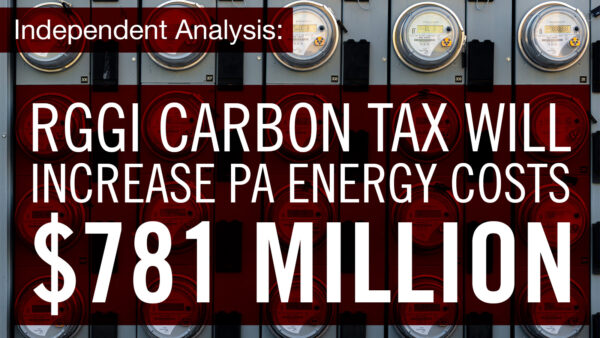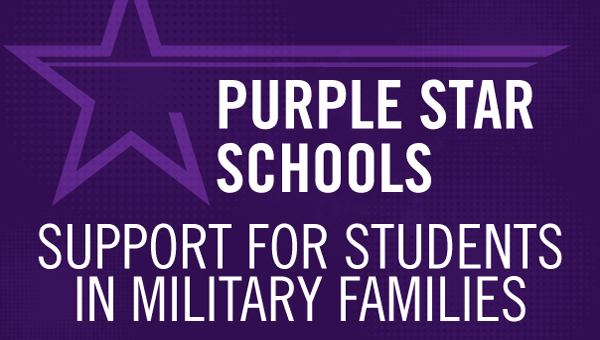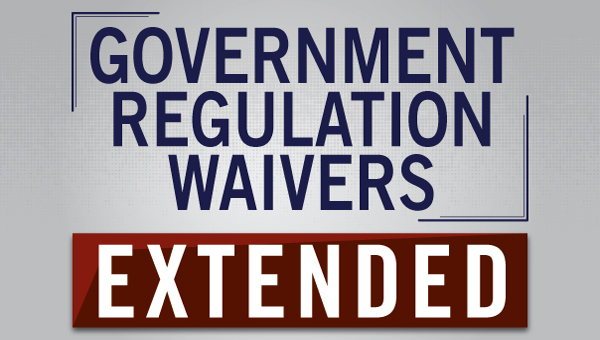|
View this email in a browser
In this Update:
- Modernizing the Acts Governing Athletic Training
- Independent Analysis Concludes RGGI Carbon Tax Could Increase Pennsylvania Electricity Costs 3.8 Times more than Wolf Administration Projections
- “Purple Star Schools” to Support Military Families Approved by Senate
- Senate Acts to Extend Pandemic Waivers of Government Regulations
- Assistance Available for COVID-Related Funeral Expenses
Modernizing the Acts Governing Athletic Training

I recently had the opportunity to meet with the Pennsylvania Athletic Trainers’ Society, during the Athletic Trainers and Student Athletic Trainers Advocacy Day at the State Capitol. The group included Greg Janik and King’s College, Athletic Training Program students, all of whom are clearly passionate about this field.
I have introduced Senate Bill 1160 and Senate Bill 1161 to modernize the acts that govern athletic trainers. Athletic trainers are board-certified health care professionals, licensed by either the State Board of Medicine or State Board of Osteopathic Medicine and recognized by the US Department of Health and Human Services (HHS) and American Medical Association (AMA) as allied health care professionals. Effective in 2022, ATs will be required to have attained a master’s degree level of education to become certified. Already in Pennsylvania, over sixty percent of the profession has a master’s degree or higher level of education.
To learn more about the legislation, view my co-sponsorship memo here.
Independent Analysis Concludes RGGI Carbon Tax Could Increase Pennsylvania Electricity Costs 3.8 Times more than Wolf Administration Projections

Impartial analysis from the Independent Fiscal Office (IFO) projects the Regional Greenhouse Gas Initiative (RGGI) could nearly quadruple new electricity costs for consumers. As we see gas prices climb higher and higher, families are feeling the strain and struggle of yet another added expense to their budgets. With inflation already increasing the cost of nearly everything, we must find ways to reduce energy costs, and provide needed relief so people can put food on their tables and meet daily needs.
The nonpartisan IFO reviewed the Wolf administration’s outdated RGGI modeling and presented its findings to a joint hearing of the Senate Environmental Resources and Energy Committee and the Community, Economic and Recreational Development Committee on Tuesday.
IFO Director Matthew Knittel said Pennsylvania could spend upwards of $781 million annually on emissions credits at the RGGI auctions – nearly four times the amount anticipated by the administration’s taxpayer-funded 2020 analysis used to justify Pennsylvania’s participation in RGGI. The IFO also warned members that “those costs would be pushed through to final customers.”
The IFO analysis also concluded that emissions reductions between 2008 and 2020 for the 10 RGGI states were comparable to non-participating states.
The administration’s effort to force Pennsylvania into RGGI is being challenged in court and could face additional legislative action.
“Purple Star Schools” to Support Military Families Approved by Senate

The Senate approved legislation to have Pennsylvania join 28 other states in establishing a Purple Star School Program for students from military families. The measure was sent to the House of Representatives for consideration.
The program is a state-sponsored recognition designed to acknowledge a public, private or charter school that has committed to supporting the unique educational and social-emotional needs of military-connected students. A Purple Star School designation means better ease and consistency in transferring schools so children experience fewer educational gaps and obtain meaningful support when frequently moving to new towns and schools as a military child.
Senate Bill 1028 would provide “Purple Star” recognition to schools that: maintain a website with resources for military-connected students and their families, designate a staff point of contact for these students, provide training to school staff to best equip them to support these families, establish a partnership with a military installation, and take other steps.
Senate Acts to Extend Pandemic Waivers of Government Regulations

The state Senate this week voted to extend waivers of several regulatory statutes, rules and regulations to aid in Pennsylvania’s recovery from the COVID-19 pandemic. Senate Bill 1019 was signed into law as Act 14 of 2022.
The waivers affecting health and human services, as well as consumers, workers and veterans, were due to expire Thursday. Act 14 extends the waivers until June 30, 2022.
The waivers were initially implemented as part of the COVID-19 emergency declaration in 2020. In response to overreach by Gov. Tom Wolf, voters in 2021 stripped him of the authority he claimed to extend emergency declarations without approval of the General Assembly. Wednesday’s vote marks the third time the legislature has extended waivers.
Some of the waivers extended through June 2022 allow for:
- Quicker access to home health care and home care services.
- Access to behavioral, mental, physical, and drug and alcohol treatment services through telehealth and ensures Medicaid providers are paid for them.
- Utilizing pharmacists, health care professionals, and alternative care sites to lessen the burden on our hospitals and acute care providers.
- Flexibilities in scheduling hearings and telephone testimony for unemployment compensation and for work permits to be issued without in-person meetings.
- PA National Guard members to operate commonwealth-owned or leased vehicles.
- Alternative and temporary locations in banking for better access.
The new law also requires commonwealth agencies to issue a report to the public and the General Assembly identifying regulatory statutes, rules or regulations that were temporarily suspended that the agency believes should be considered for a permanent suspension.
Assistance Available for COVID-Related Funeral Expenses

Pennsylvanians who incurred funeral expenses for a COVID-19-related death can apply for the Federal Emergency Management Agency’s (FEMA) COVID-19 funeral assistance program to help ease the financial burden brought on by the pandemic.
The program will provide reimbursement for expenses incurred for funeral services, including but not limited to transportation to identify the deceased individual, the transfer of remains, a burial plot or cremation niche, a marker or headstone, clergy or officiant services, the use of funeral home equipment or staff, and cremation or interment costs.
Eligible applicants can apply for the funeral assistance program by calling FEMA’s COVID-19 Funeral Assistance Helpline at 1-844-684-6333 from 9 a.m. to 9 p.m., Monday through Friday to begin the application process.
|










